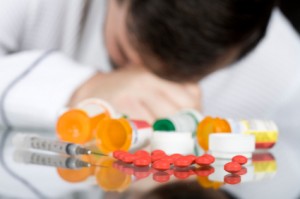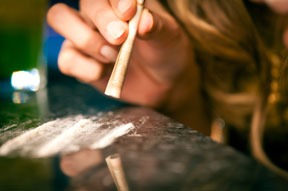Stimulant Withdrawal Symptoms You May Experience
Stimulants are considered to have one of the worst withdrawal periods of any drug type. This is not because they cause intense physical side effects the way that alcohol does but because the symptoms of stimulant withdrawal are largely psychological, and many of them can linger for a vey long time.
The psychological symptoms produced by cocaine withdrawal “rival or exceed that felt with other withdrawal syndromes” (NLM). This is true of other stimulants like methamphetamine and prescription ADHD medications as well. The withdrawal syndrome for stimulant abusers is intense, and it will be easier for you to prepare if you understand what you are likely to experience.
Cravings
One of the strongest symptoms you will experience is a craving for more of the drug. The withdrawal syndrome is usually broken up into three periods (the early, the intermediate, and the late) and all three are likely to be characterized by intense cravings. According to the CHCE, those in the late withdrawal phase may experience a strong desire for the drug caused by triggers (“objects and people in the addicted person’s life”) that put them in danger for relapse, sometimes even years after they have stopped abusing the drug.
Cravings for drugs like cocaine, amphetamines, crystal meth, and MDMA (or molly) can be very hard to fight. If a person has been taking prescription stimulants (like Ritalin, Concerta, etc.) and not abusing them, they will not experience cravings as a part of their withdrawal syndrome. However, those who do will often deal with them for months or even years to come.
Fatigue
Especially in the first week or so, you will feel extremely tired and drained of all energy. You will likely sleep quite a great deal, although stimulant withdrawal can cause vivid nightmares which may give one insomnia from time to time. The fatigue experienced by stimulant abusers during this time is both psychological and physical, and everything, even your own movements, will seem to be slower which can be extremely frustrating.
Irritability
It is common for individuals who abused stimulant drugs to become irritable and difficult to get along with during withdrawal. This is usually caused by many of the other symptoms including:
- A frustration with how slowly things will move after stopping stimulant abuse
- An extreme desire for more of the drug manifesting into anger
- Tiredness and crankiness caused by fatigue and either lack of sleep or too much sleep
- General annoyance with the fact that they feel dysphoric and unhappy when they are used to getting their happiness from the drug.
Anxiety
This symptom will be caused by the absence of the drug’s euphoria and the way it often makes users feel confident and impressive to others. For many individuals, amphetamines and other stimulant drugs cause “unrealistic feelings of cleverness, great competence, and power” (CESAR).
Suddenly being without the drug can cause a person’s opinion of themselves to swing back the other way and they become extremely worried, under-confident, and anxious. The intense cravings during withdrawal will cause them to become anxious as well, as their body is making them feel like they should be on the drug.
Depression
Depression is one of the other more dangerous symptoms of stimulant withdrawal and one that is experienced, at one level or another, by those who go through this syndrome. General malaise or dysphoria is common in some individuals, but certain people may experience intense symptoms, even those of a full-blown case of depression. For these individuals especially, the risk of relapse, overdose, and suicide is extremely high and should be guarded against at all costs.
Whether it is a disorder that existed before stimulant addiction or one that has only now come about because of it, there is a need for patients to receive treatment for co-occurring disorders like depression along with medically-assisted withdrawal and addiction treatment. According to the NIDA, “Establishing which [disorder] came first or why can be difficult,” but both the addiction/withdrawal and the depression must be treated for the individual to have a chance at a strong recovery.
Anhedonia

Anhedonia is the inability to feel pleasure.
Anhedonia, or the inability to feel pleasure, is another common stimulant withdrawal symptom. Because individuals who abuse these drugs are used to feeling high highs and low lows as a result of their abuse, withdrawal can leave them feeling emotionally numb or unable to take pleasure in anything. This will eventually wear off, but while it lasts, you will be likely to become moody and unhappy and nothing will seem to satisfy you.
Appetite Increase
Stimulants suppress the appetite, so suddenly not having them in your system will cause your appetite to increase and, in most cases, you will gain weight. However, this is a particularly beneficial symptom as many people who abuse stimulants become extremely malnourished as a result of their decreased appetite. Gaining back a little weight will make you feel healthier and happier over time, although it is important to eat healthy foods during this time in order to promote these feelings of wellness.
Restlessness
At certain times during withdrawal, it will be hard for you to keep still. You may feel restless or extremely agitated, which can be incredibly frustrating especially if you are exhausted. Try to make yourself calmer by lying down in a dark room for twenty minutes at a time or engaging in low-impact, pleasant activities.
Toxic Psychosis
In certain conditions, a person who has been abusing stimulants in extremely high doses might undergo toxic psychosis during withdrawal. This will usually occur in those who are already exhibiting symptoms before they stop taking the drug including
- Extreme paranoia
- Aggression
- Violent behavior
- Hallucinations
- Delusions
According to the NIDA, the individual “loses touch with reality” and may need to be restrained. This is why it is important to take someone undergoing serious stimulant withdrawal symptoms to a hospital or treatment clinic. Toxic psychosis is extremely dangerous but, with the proper treatment, most patients make a full recovery.
It is difficult to be sure how any one person will respond to withdrawal from stimulants, but the larger doses you take and the higher frequency of these doses, the more you risk experiencing intense stimulant withdrawal symptoms.



